COMMUNITY
NEWSLETTER
June 2024
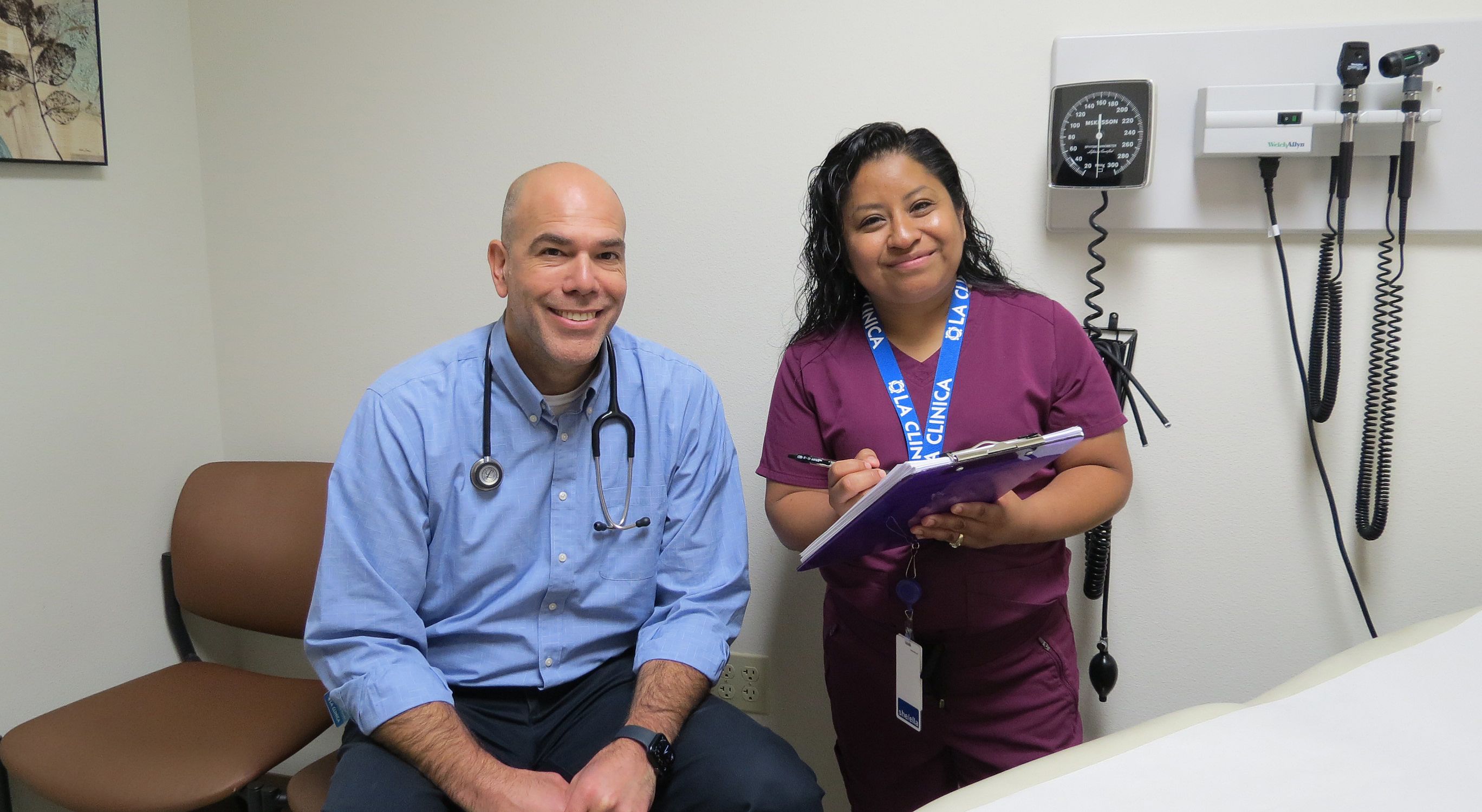
Thank you to the patients who told their La Clinica stories for this newsletter.
The team is on it


New approach leads to better access and improving patient blood pressure

Regina Horton
Regina Horton
Regina Horton has been a La Clinica patient for more than a decade. While she’s seen primary care providers come and go, she said the care she gets from the team at Central Point Health Center has always been fabulous.
To make sure every patient can get excellent care when they need it, even when staffing is tight, Central Point’s staff set up two teams — each with a primary care provider, medical assistants, nurses, and behavioral health experts who hold specific parts of patient care. Since December, shifting what these team members focus on and how they work in support of one another and patients has meant the number of people who get care at the center has grown to almost 2,500 from 2,100. Even more importantly, by getting more patients in for care more quickly, the teams are seeing real improvements in people’s health, particularly in the control of high blood pressure.
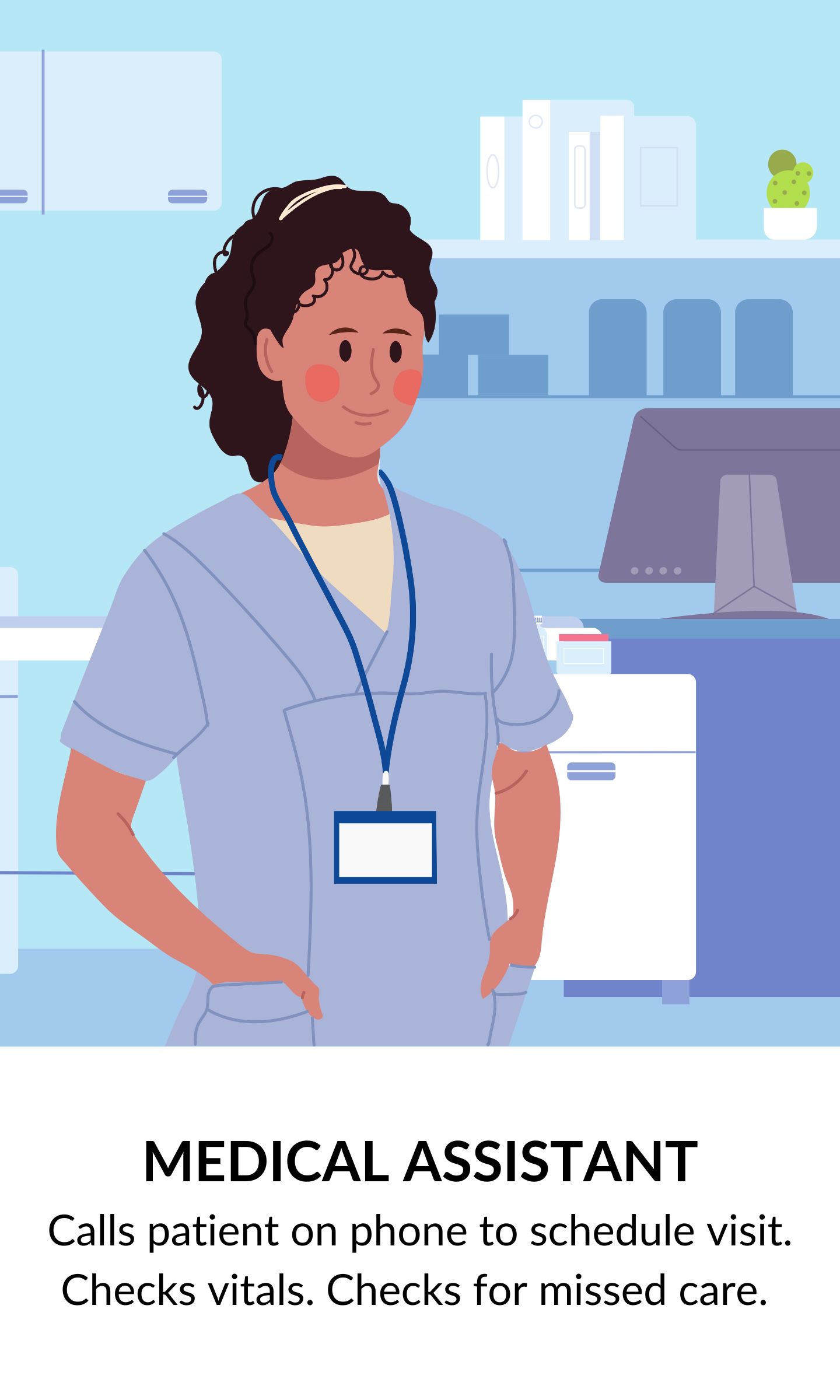
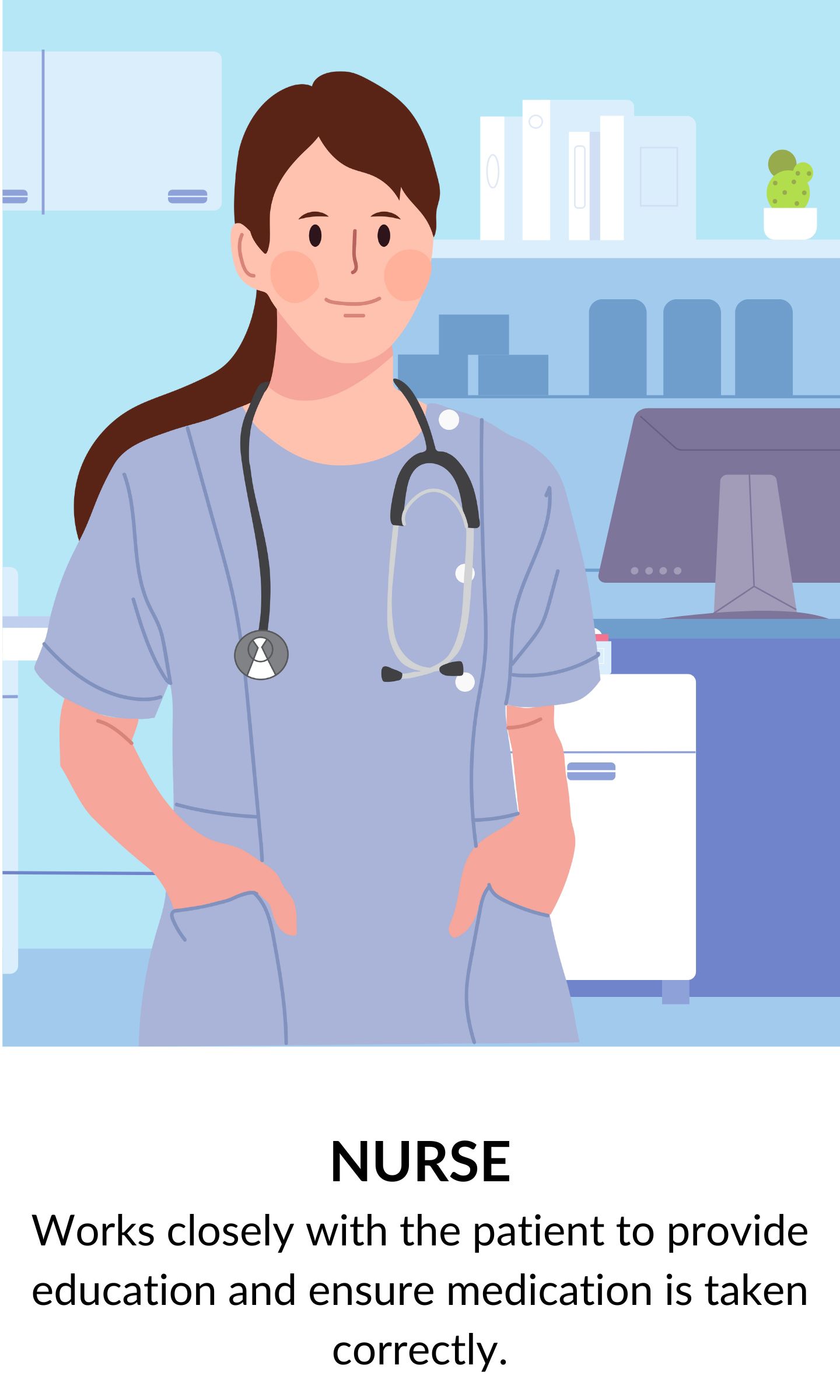
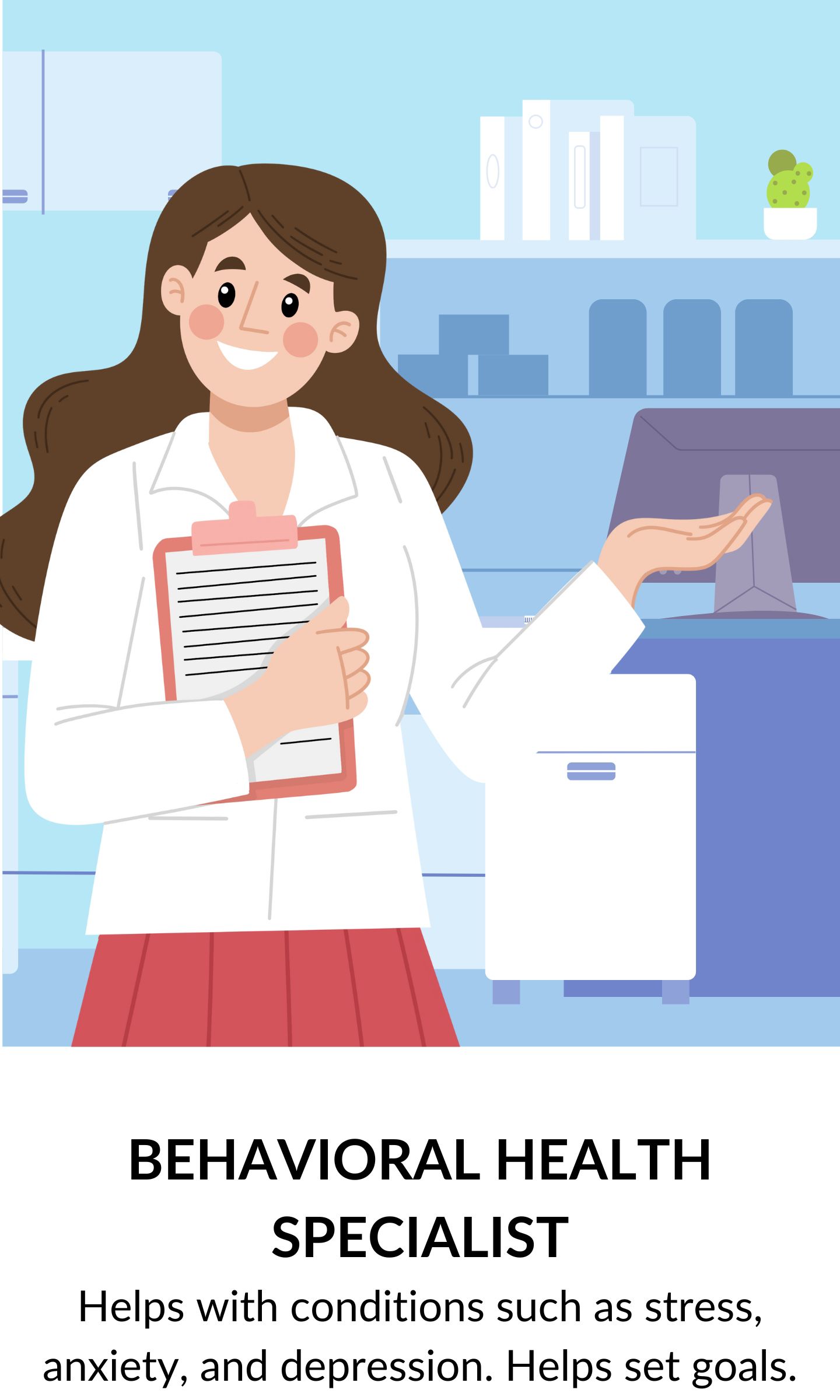

Late last year, about 68% of Central Point patients diagnosed with high blood pressure had their blood pressure under control. This month, more than 80% of them do.
Physician Assistant Dan Stein and Medical Director Liz Banowetz credit the expanded team-based care model for the improvement.
“We proactively call patients with uncontrolled blood pressure and schedule them for a visit with our medical assistants,” Dan said.
Medical assistants Nancy Bastian and Maria Barajas have stepped up to new duties as part of the change, making calls and meeting with patients. During a visit, the medical assistant can bring in a nurse if medications need to be adjusted or call in the primary care provider for more complex medication adjustments and to address other acute needs. Beyond just monitoring blood pressure, the medical assistants make sure patients aren’t missing other care such as vaccines or depression screening.
Regina Horton now comes in for testing, support, and education about her blood pressure and diabetes, and was even able to reach out for help with depression.
“La Clinica always seems to me to be searching for better ways to do what they do,” she said.
Her care team helped get her blood pressure on the right track by making sure she comes in for regular care even though she’s busy with sometimes stressful family duties. At these visits the team manages her medication and encourages her to exercise. “They have improved my quality of life,” she said.
Medical assistants and nurses are growing their skills, building deeper relationships with patients, and feeling more satisfied with their expanded roles, Dan said.
“It is exciting to see the changes happening in how we deliver care and how our team is working together to deliver quality health care,” he said.
Chief Medical Officer Chris Alftine sees an opportunity for the lessons learned at Central Point to help patients across the organization. “Our intention is to take the winning formulas and apply them at other clinics to help more patients,” he said.





The right steps



Rosa Ruggiero talks with Physician Assistant Resident Garrett Sonntag about a patient's care.
Rosa Ruggiero talks with Physician Assistant Resident Garrett Sonntag about a patient's care.
System ensures patients get the help they need with emotions, thoughts, behaviors
Mental Health Nurse Practitioner Rosa Ruggiero spends most days behind the scenes at La Clinica, making sure patients get the right level of care as they work through challenges with emotions, thoughts, and behaviors. Moving between health centers, she reviews other healthcare providers’ questions and provides in-the-moment advice.
How best to handle a patient having a psychotic episode during his first visit to La Clinica? Can a young person with anxiety stop medication right away, or does he need to do that slowly? Does the patient having trouble sleeping really need medications, or can her issues be handled through lifestyle changes?
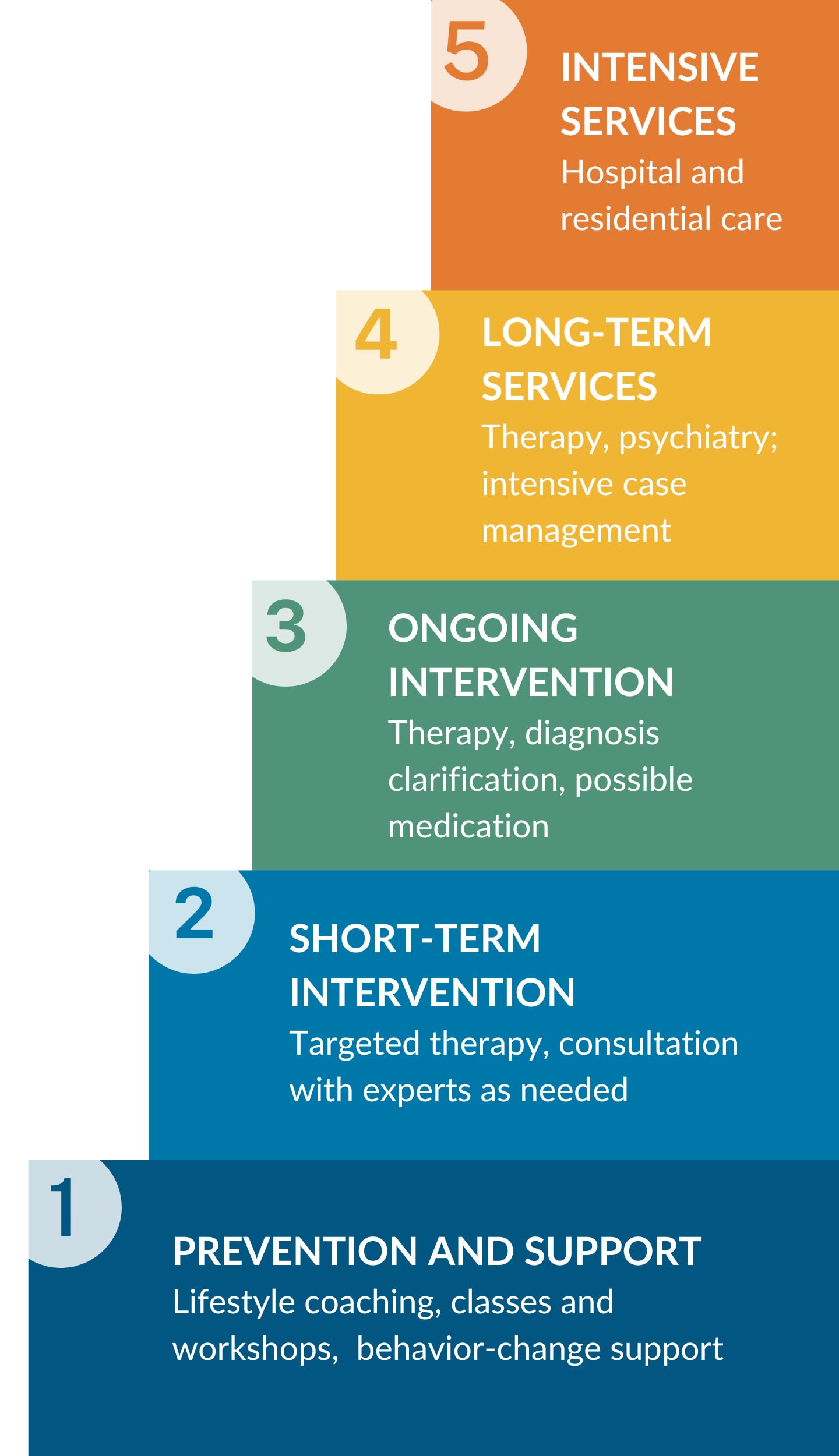
With the support of staff, patients working through challenges with emotions, thoughts, and behaviors can move up and down five steps of care depending on their needs. Patients access most of steps 4 and 5 through La Clinica's community partners.
La Clinica has identified a five-step approach to behavioral health care that is aimed at ensuring patients get the level of help most suited to their needs. They can move up the steps of care into psychiatric care when their needs are high or down to simple behavioral health support as their needs decrease. The organization is focusing its two psychiatric providers, Rosa and Child and Adolescent Psychiatrist Kyle Rutledge, primarily on making sure the system works rather than placing them in back-to-back patient visits as is the norm in many places.
“It’s a decision La Clinica has made that we won’t use these providers in a way that might be most directly profitable but instead we ask them to share their expertise to improve the system of care in the Rogue Valley so people can rapidly access support to best meet their needs,” said Laura Bridges, La Clinica’s behavioral health officer.
This approach follows a national model for integrated behavioral health, which puts behaviorists into primary care teams. La Clinica employs behavioral health clinicians and support specialists across the organization and is using the psychiatric providers to create higher-level support and medication expertise. Rosa and Kyle provide this across La Clinica and in a partnership with Southern Oregon Pediatrics.
There, they enter the picture when a patient may need psychiatric consultation or brief care. They answer medication questions, provide short-term psychiatric help, and work with the clinic team to determine next steps. The partnership using the stepped approach has been a game changer, said Lona Dillard, an integrated behavioral health clinician at Southern Oregon Pediatrics.
“In my experience, I think it’s the most innovative thing I’ve been a part of,” she said. “When we use this step-up and step-down model, we’re using everyone’s time efficiently. Historically what would happen is that we would know kids needed a higher level of care, we would put in a referral (to a specialist), and then we would say, it might be a year, which is frustrating for everyone involved.”
Early indications are that the system is working both for patients and to decrease the demand for unnecessary complex care in the community. Between January and May of this year, eight La Clinica patients in the stepped program moved into higher levels of psychiatric care in the community and 79 others moved down in steps, back into non-psychiatric behavioral health support offered through their primary care teams. All had improved scores on standard stress and anxiety tests.

With the support of staff, patients working through challenges with emotions, thoughts, and behaviors can move up and down five steps of care depending on their needs. Patients access most of steps 4 and 5 through La Clinica's community partners.
With the support of staff, patients working through challenges with emotions, thoughts, and behaviors can move up and down five steps of care depending on their needs. Patients access most of steps 4 and 5 through La Clinica's community partners.

With the support of staff, patients working through challenges with emotions, thoughts, and behaviors can move up and down five steps of care depending on their needs. Patients access most of steps 4 and 5 through La Clinica's community partners.
With the support of staff, patients working through challenges with emotions, thoughts, and behaviors can move up and down five steps of care depending on their needs. Patients access most of steps 4 and 5 through La Clinica's community partners.

With the support of staff, patients working through challenges with emotions, thoughts, and behaviors can move up and down five steps of care depending on their needs. Patients access most of steps 4 and 5 through La Clinica's community partners.
With the support of staff, patients working through challenges with emotions, thoughts, and behaviors can move up and down five steps of care depending on their needs. Patients access most of steps 4 and 5 through La Clinica's community partners.

With the support of staff, patients working through challenges with emotions, thoughts, and behaviors can move up and down five steps of care depending on their needs. Patients access most of steps 4 and 5 through La Clinica's community partners.
With the support of staff, patients working through challenges with emotions, thoughts, and behaviors can move up and down five steps of care depending on their needs. Patients access most of steps 4 and 5 through La Clinica's community partners.

With the support of staff, patients working through challenges with emotions, thoughts, and behaviors can move up and down five steps of care depending on their needs. Patients access most of steps 4 and 5 through La Clinica's community partners.
With the support of staff, patients working through challenges with emotions, thoughts, and behaviors can move up and down five steps of care depending on their needs. Patients access most of steps 4 and 5 through La Clinica's community partners.
Valued, respected, embraced


La Clinica uses grant funding to build structure for transgender and nonbinary patients
With chronic health conditions necessitating multiple surgeries stretching back to childhood, Finn Roby, 58, has experienced a lot of health care. He also had a successful career managing kidney dialysis centers where he loved advocating for patients and healthcare workers.
When he came out as a trans man a decade ago, though, he had some negative experiences getting the care he needed. One healthcare provider repeatedly called him the wrong name, even after he had gone through the legal process to change his name. Another shared that his sons had questions about physical aspects of trans men in a way that made Finn believe that his medical appointment had been discussed at the doctor’s home.
These experiences led him to transfer his care to Kelly Church, a La Clinica family nurse practitioner at Birch Grove Health Center. Finn had worked with Kelly at a dialysis clinic when she was first starting her medical career, and he knew she would be open, respectful, and a great provider.
“I’ve found La Clinica to be such a great place. It’s the best care I’ve found in Southern Oregon,” he said. “I’m treated with respect and kindness. Who I am is honored.”
Now Finn and Kelly are both part of La Clinica efforts to ensure and increase the availability of excellent care for transgender and nonbinary patients. La Clinica provides behavioral health support, gender-affirming hormone therapy, referrals for surgical consultations, and connections to other resources. It has about 200 patients getting this care right now. In late 2023 Seeding Justice, a Portland-based foundation supporting social change, awarded a $750,000 grant to build on these services.
La Clinica hired its first gender affirming care coordinator, Danielle Mancuso, to oversee the work. Finn is part of a gender affirming care advisory council that will bring together up to 10 patients and community partners to give feedback on La Clinica’s services and help carry information about those services into the community. The group plans to start meeting later this summer.
Kelly is part of a specialty team within La Clinica that brings together primary care providers, behavioral health clinicians, and a variety of support roles to be a resource for employees. With members in varied roles across the organization, the team aims to provide training, consultation, and peer support that will help make sure gender diverse patients are welcomed and get the care they need.
Danielle is training employees, starting with patient service representatives who greet each patient, on understanding and serving LGBTQ+ patients. Also in the works are programs that will help pay for gender-affirming hormones for patients without financial resources and provide vouchers for gender-affirming undergarments and accessory products to help them feel comfortable in their body.


"Our aim is to build a care program that not only heals individuals physically but also contributes to the creation of a world right here in this valley where people feel valued, respected, and embraced for who they are."
Danielle Mancuso, gender affirming care coordinator
Building the blocks of care

Services
La Clinica offers behavioral health support, gender-affirming hormone therapy, referrals for surgical consultations, and connections to other resources.

Advisory council
A gender-affirming care advisory council made up of patients and community members will give La Clinica feedback on services and help spread awareness.

Specialty team
A group of primary care providers, behavioral health clinicians, and support employees will serve as a resource for La Clinica staff.
Keeping care on campus



Tiana Gilliand, right, started using the SOU student health center as a freshman and now works there along with Sue Phillips, the center's business manager. Both are looking forward to a La Clinica partnership on campus.
Tiana Gilliand, right, started using the SOU student health center as a freshman and now works there along with Sue Phillips, the center's business manager. Both are looking forward to a La Clinica partnership on campus.
SOU-La Clinica partnership ensures students’ access, expands services
Tiana Gilliland first visited the Southern Oregon University Student Health and Wellness Center for a sports physical as a freshman on the women’s wrestling team. In 2023 as a sophomore, she began working there, advocating for the center and informing fellow students about its health and counseling services.
“When you have health services offered directly on campus, it’s convenient,” Tiana said. “I don’t have a vehicle, so having the center within walking distance has really helped me prioritize my class schedule.”
To preserve these vital services when campus health center costs outpaced revenue, SOU has partnered with La Clinica to take over operations starting in September.
“La Clinica’s business model and scale of operations, combined with lower personnel costs, will enable La Clinica to operate our Student Health & Wellness Center sustainably and affordably, while ensuring high-quality care for our students,” SOU President Rick Bailey noted in an email to students in April.
La Clinica accepts most insurance, including the Oregon Health Plan, and does not turn away patients for inability to pay. Under the partnership, students will continue to pay a mandatory health fee as part of their tuition, with La Clinica billing insurance and keeping other costs low for students. This approach ensures that students continue to receive low-cost healthcare while also bringing financial stability to the center.
"Keeping convenient medical and mental health care resources on campus is vital for SOU students," said Sue Phillips, the Student Health & Wellness Center business manager who has worked at the center for 14 years. "Healthy bodies and minds help students academically, and that’s what we’re here for."
The on-campus health center provides contraceptives, walk-in care, chronic disease management, and 24/7 mental health care through TELUS, which offers easy access to mental health counselors. From September 2022 to August 2023, the center recorded 4,232 student visits. Most of the SOU health center staff will stay on with La Clinica after the transition.
“Sometimes students don’t know how to seek medical help for the first time,” Tiana said. “The staff at the Student Health & Wellness Center have a lot of experience working with college-age students. They understand what we’re going through academically and personally.”
While this will be La Clinica’s first university-based health center, the organization already provides comprehensive health care at 19 schools in Jackson County, ensuring that students can see a medical or mental health provider promptly without missing school.
The partnership offers students access to services at other La Clinica locations, including dentistry, women’s health care, The Learning Well education and support services, and enhanced care for transgender and nonbinary patients, connecting students to a larger network of support.
“I think it’s going to be a great transition,” Sue said. “La Clinica has a lot of resources that we don’t have, and I look forward to our partnership.”

Celebration!






La Clinica's new Acute Care Clinic opened for service on June 10. Supporters turned out at the end of May to celebrate with a ribbon-cutting. State Rep. Pam Marsh, above left, who helped secure funding for the building, spoke of significant community need for the services. U.S. Sen. Ron Wyden, far right in the photo above right, spoke of the value community health centers bring to the healthcare system.
Up next
La Clinica plans to start offering x-rays at the new Acute Care Clinic around the end of August. A team of three x-ray technicians will be able to check for broken bones and take other diagnostic x-rays. “Outside of it being just incredible care, it reduces barriers and helps contain costs,” said Medical Operations Director Ali Salazar. Patients won’t have to go to another location, register in a separate health system, or face additional bills.
By next year, work is expected to start on remodeling or rebuilding La Clinica's previous Acute Care Clinic across a driveway from the new building.

Project updates

Teams visit schools.
Teams visit schools.
Mobile health services
We're on track for delivery of a new mobile health center by the end of 2025. Until then, La Clinica's field-based care teams continue outreach efforts and work to connect people to care at one of our centers.

A resident sees a young patient.
A resident sees a young patient.
Training for providers
La Clinica's Advanced Practitioner Residency Program is wrapping up its first year and accepting new grads' applications for the second, which begins in the fall. The training program is helping build the local healthcare workforce while also opening care at La Clinica to more people.

This year's report focuses on health equity.
This year's report focuses on health equity.
Annual report
Our annual report is our review of the previous year's work. Find highlights of our year and 2023 service numbers in it.


Support our work
We rely on financial contributions from community members, partners, grants, and foundations to do what we do in the community. Join our supporters today.
Join our employee team
We’re a different kind of employer, a great place to start, continue, or finish your career or even to get your feet wet for the first time in the working world. See if you're a good fit.
Meet our board
La Clinica's work is guided by an ambitious, committed, and engaged group of community leaders that includes some of our patients. Learn more.
Thank you for reading. We are grateful for the community support that makes our work possible.



